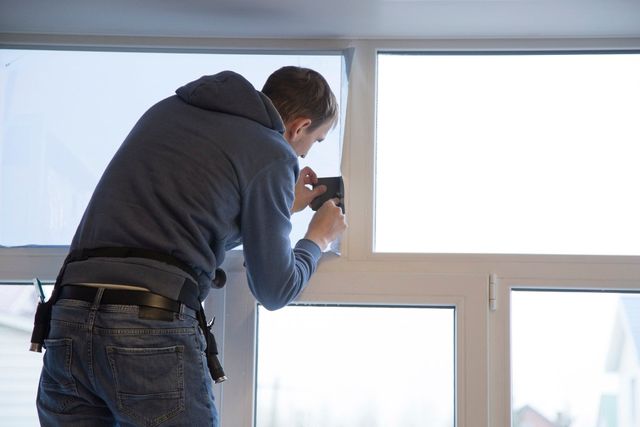Why Residential Window Tint is Perfect for Office and Researches
Why Residential Window Tint is Perfect for Office and Researches
Blog Article
How Residential Home Window Tinting Enhances Your Home's Energy Efficiency
Residential window tinting presents an engaging remedy for property owners looking for to boost energy efficiency within their living rooms. By using specialized movies to windows, it efficiently reduces heat transfer, thus supporting interior temperatures and minimizing the need for extreme home heating or air conditioning.
Understanding Home Window Tinting
Recognizing home window tinting is essential for property owners seeking to boost both comfort and power performance in their living spaces. Residential Window Tint. Window tinting involves the application of a slim film to the interior or exterior surface of glass windows. This movie can considerably modulate the amount of sunlight and heat that enters a home, thus affecting indoor environment conditions
There are numerous kinds of home window tinting movies readily available, each with distinctive residential or commercial properties. Colored films take in solar power, while reflective movies deflect it away from the glass surface area. Ceramic films provide an equilibrium of visibility and warmth being rejected, making them a prominent option amongst homeowners. The effectiveness of home window tinting is often measured by its Visible Light Transmission (VLT) percent, which suggests exactly how much light can go through the film.
Advantages of Energy Effectiveness
Window tinting not just improves aesthetic appeals but also plays a substantial function in improving power efficiency within household areas. By lowering warmth transfer with home windows, tinted movies create a more secure indoor climate, which can lead to significant decreases in energy usage for heating & cooling. This power performance equates right into lower energy costs, supplying homeowners with substantial lasting cost savings.

In addition, home window tinting improves the comfort of living rooms. By minimizing glow and blocking hazardous UV rays, colored home windows produce a more positive setting, which can result in improved health for owners. The security versus UV rays additionally helps maintain furniture and floor covering from fading, contributing to the longevity of family items.
Just How Tinting Works
Tinting films run through a mix of advanced materials and technologies made to manage the amount of solar power getting in a home. Largely composed of polyester, these movies typically incorporate metal or ceramic bits that mirror and take in warm. This twin capability enables them to significantly minimize the penetration of ultraviolet (UV) rays and infrared radiation while permitting visible light to pass through.
The performance of window tinting is determined by its solar warmth gain coefficient (SHGC), which indicates just how much solar power is sent through the window. Reduced SHGC values are more suitable as they denote better heat being rejected. In addition, home window colors can feature a variety of tones, permitting homeowners to personalize their aesthetic choices while enhancing power effectiveness.
Moreover, these films function as an obstacle, avoiding warm loss throughout chillier months by mirroring indoor heat back right into the home. This thermal insulation effect matches the cooling benefits gotten throughout warmer months, adding to a well balanced interior environment year-round. By taking care of solar power efficiently, property home window tinting not just boosts comfort however also plays a vital function in lowering energy i was reading this usage and reducing utility bills.
Choosing the Right Tint

There are numerous kinds of home window films offered, consisting of dyed, metalized, and ceramic. Colored films are economical but may have restricted resilience. Metalized films offer far better heat denial but can disrupt digital signals. Ceramic films supply superb heat control without jeopardizing presence and are her latest blog very durable, making them a prominent option.
Noticeable light transmission (VLT) is one more crucial element, as it suggests the amount of all-natural light that can go through the tinted glass. Property owners must select a color with a VLT that matches their lights choices while still offering appropriate glare reduction.
Furthermore, evaluating the solar heat gain coefficient (SHGC) can help determine how well a color can obstruct warm from sunlight. A lower SHGC indicates better warmth control, inevitably boosting power effectiveness.
Installation and Maintenance Tips
Proper installment and maintenance are essential elements in optimizing the benefits of residential home window tinting. Professionals likewise make use of specialized strategies and tools, which can boost the sturdiness and performance of the tint.
Complying with installment, upkeep is important to extend the life of the window movie. It is recommended to wait at least 30 days before cleaning up the colored home windows to enable the adhesive to cure completely.
Furthermore, routine examinations are beneficial. Inspect for any kind of peeling or bubbling, which can indicate improper installation or wear in time - Residential Window Tint. Addressing these problems quickly can stop additional damage and preserve energy efficiency. By adhering to these installation and maintenance tips, property owners can ensure their window tinting continues to offer significant energy savings and convenience for several years ahead.
Verdict
In verdict, residential window tinting serves as a reliable service for boosting power effectiveness within homes. By reducing warm transfer and obstructing dangerous UV rays, window films add to decrease energy usage and boosted indoor convenience.
Window tinting entails the application of a slim movie to the interior or exterior surface area of glass windows. By reducing warm transfer via windows, tinted films develop a much more secure interior climate, which can lead read here to considerable decreases in power consumption for home heating and air conditioning.The performance of window tinting is measured by its solar warm gain coefficient (SHGC), which shows how much solar energy is transmitted via the window. By taking care of solar power successfully, residential home window tinting not just boosts comfort yet additionally plays a vital role in decreasing energy usage and decreasing energy costs.
By reducing heat transfer and blocking hazardous UV rays, home window films contribute to reduce energy usage and enhanced indoor convenience.
Report this page